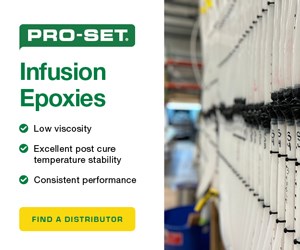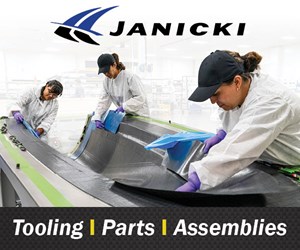DSM, Toyota Motorsport sign technology partnership
TMG will develop and pilot new engineering solutions using DSM high performance materials and products for potential application in the automotive industry.
Royal DSM (Heerlen, Netherlands) has signed a technology partnership agreement with Toyota Motorsport GmbH (TMG, (Köln, Germany), a 100% subsidiary of the Toyota Motor Corp. The agreement involves all DSM businesses active in supplying materials and technology to the automotive sector – engineering plastics, Dyneema (ultrahigh molecular weight polyethylene fiber), and 3D printing including Somos for stereolithography (SLA), and other technologies like Fused Filament Fabrication (FFF).
Under the non-exclusive agreement, DSM will have the opportunity to act as TMG’s preferred material and product provider. TMG will develop and pilot new engineering solutions using DSM high performance materials and products for potential application in the automotive industry. TMG will also test and evaluate DSM products and act as a test user for defined projects.
“We are very excited about this new agreement,” said Golnar Motahari Pour, president of DSM Dyneema. “DSM offers an array of materials that are ideally suited to high performance applications in the automotive arena, and we believe that working together with TMG we will be able to expand our horizons even further. Everybody at DSM is looking forward to being able to work with such a front-runner in automotive engineering from the initial design phase onwards.”
“DSM thermoplastics like Stanyl, ForTii and Akulon already have an important place in automotive, especially under the hood”, Motahari Pour points out, “but we are also moving quickly into thermoset composites. Last year, for example, we introduced Dyneema Carbon, which we believe represents a leap in the evolution of carbon.”
Related Content
-
Plant tour: Joby Aviation, Marina, Calif., U.S.
As the advanced air mobility market begins to take shape, market leader Joby Aviation works to industrialize composites manufacturing for its first-generation, composites-intensive, all-electric air taxi.
-
Materials & Processes: Fabrication methods
There are numerous methods for fabricating composite components. Selection of a method for a particular part, therefore, will depend on the materials, the part design and end-use or application. Here's a guide to selection.
-
Materials & Processes: Resin matrices for composites
The matrix binds the fiber reinforcement, gives the composite component its shape and determines its surface quality. A composite matrix may be a polymer, ceramic, metal or carbon. Here’s a guide to selection.













